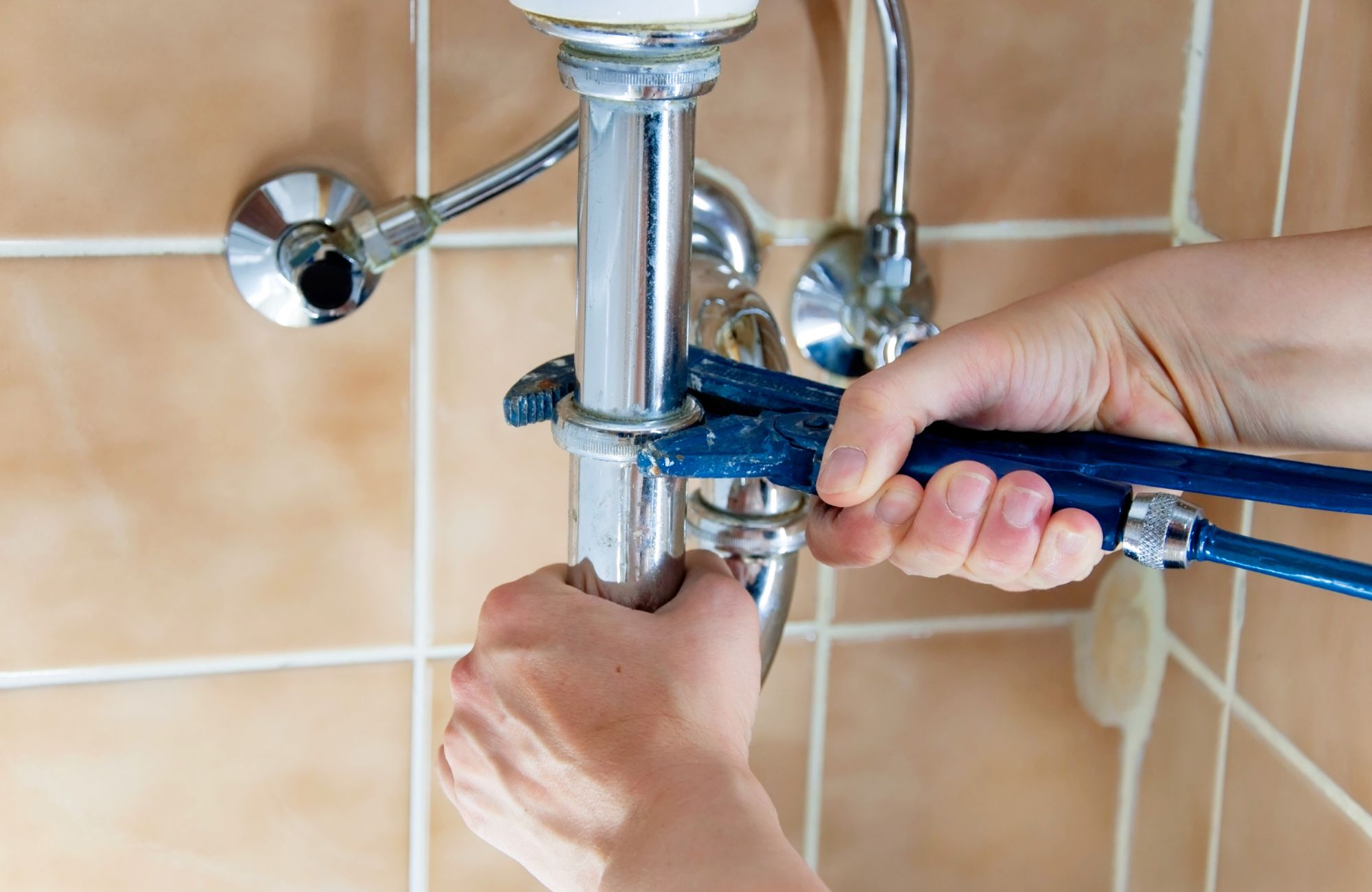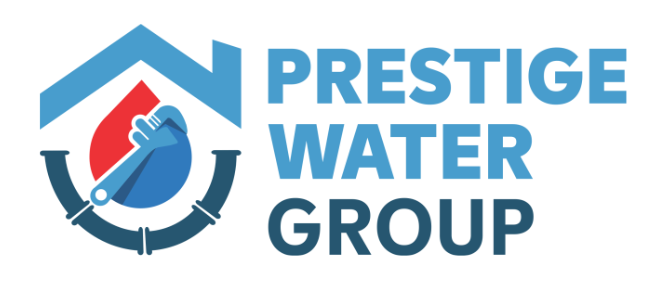
Does a Plumber Replace Pipes? What You Should Know
Replacing pipes isn’t just about fixing a leak, it’s often a necessary investment in your home’s safety, efficiency, and value. If you’ve noticed low water pressure, discolored water, or signs of corrosion in your plumbing system, you might be wondering: does a plumber replace pipes, and what does that involve?
Yes, licensed plumbers do replace pipes, and in many cases, it’s the safest and most effective way to resolve ongoing plumbing issues. In this guide, we’ll break down everything you need to know: from the types of piping materials used to signs you need a replacement, and how much it all typically costs.
Types of Plumbing Pipes: Pros & Cons
Your home’s plumbing system can include several types of pipes, each with its benefits, drawbacks, and lifespan. Understanding the materials used in your system can help you make an informed decision when it’s time for a pipe replacement.
Copper Pipes
Copper pipes have been a reliable choice in American homes for decades. Known for their durability and corrosion resistance, they offer long-term value, even if they cost more upfront.
- Copper pipes can last 50 to 100 years, making them one of the longest-lasting piping materials.
- They’re recyclable and resistant to bacteria, which is important for drinking water safety.
- However, copper can be more expensive and may require professional installation due to soldering.
Galvanized Steel Pipes
Galvanized steel was once a standard material in home plumbing but has since been largely phased out.
- These pipes are prone to rust, corrosion, and buildup, especially after 40–50 years.
- Common signs of deteriorating galvanized plumbing include low water pressure, orange-tinged water, and strange noises in the pipes.
- Due to potential lead content in older homes, galvanized pipes are considered a health hazard and should be replaced.
PEX Pipes
PEX (cross-linked polyethylene) is a flexible, plastic-based material that has become increasingly popular for new plumbing systems and retrofits.
- It’s affordable, easy to install, and resistant to freezing temperatures.
- PEX is ideal for tight spaces and can bend around corners without fittings, saving on labor and material costs.
- Downsides? It’s vulnerable to UV light and can be damaged by rodents if installed in crawl spaces or attics.
CPVC Pipes
CPVC (chlorinated polyvinyl chloride) pipes offer another plastic-based option with a few specific use cases.
- They’re easy to install, resistant to corrosion, and less expensive than copper.
- However, CPVC has a lower temperature threshold, making it less ideal for hot water lines.
- Over time, these pipes can become brittle and may be prone to cracking under stress.
When Should You Replace Plumbing Pipes?
It’s not always obvious when pipes need replacing. Some issues build gradually over the years, while others strike suddenly. Knowing the signs can help you avoid costly repairs and protect your home from water damage.
Old Pipes
Aging pipes are one of the most common reasons for full or partial pipe replacement.
- Most galvanized steel pipes last 40–50 years, while copper can last up to 100 years.
- Old pipes may cause low water pressure, leaks, and frequent clogs due to internal corrosion.
- You might also notice discolored water, or hear knocking and banging sounds in your plumbing fixtures.
Lead Pipes
Lead pipes, once common in older homes, are now considered extremely hazardous.
- Even minimal lead exposure in drinking water can pose serious health risks, especially for children.
- These pipes often degrade over time, leaching toxic material into your water supply.
- If your home was built before 1950 and still has original piping, a professional inspection is highly recommended.
How Plumbers Replace Pipes: Step-by-Step
Pipe replacement, especially in older homes, is a complex job that should be handled by a licensed plumber. Here’s what the process typically involves.
Turning Off the Water Supply
Before any work can begin, the main water valve must be shut off to prevent leaks and flooding.
- This step protects your home and allows the plumber to work safely.
- In multi-unit buildings or larger homes, sectional shut-offs may be used to isolate specific areas.
Removing Old Pipes
Taking out old plumbing can be labor-intensive, particularly if the pipes run through walls, ceilings, or under floors.
- Technicians may need to cut holes in drywall or ceiling panels to access the existing pipes.
- Some materials, like galvanized steel or lead, require special handling due to safety concerns.
Installing New Pipes
Once the old system is removed, your plumber will install the new piping layout.
- Proper installation improves water flow, ensures pressure consistency, and reduces the chance of leaks.
- Depending on the materials used and the complexity of the system, installation may take a few days to complete.
How Much Does It Cost to Replace Pipes?
The total cost of a repiping job varies greatly depending on the size of the house, type of piping, and labor rates in your area.
Labor Costs
Labor makes up a large portion of plumbing replacement expenses.
- Rates typically range from $45 to $200 per hour, depending on location and job complexity.
- Working in tight spaces, older homes, or multi-level systems can increase the labor required.
Material Costs
Material choice also plays a major role in determining overall price.
| Pipe Type | Cost per Linear Foot |
|---|---|
| PEX | $0.40 – $2.00 |
| CPVC | $0.50 – $2.50 |
| Copper | $2.00 – $12.00 |
| Galvanized (not recommended) | Varies |
- Material needs will depend on total square footage, the number of fixtures, and whether it’s a partial or whole-house repipe.
Permits and Inspections
In most states, including New Jersey, repiping requires building permits and inspections.
- Costs typically range from $50 to $500, depending on your municipality.
- A licensed plumber will usually handle permitting and ensure your new plumbing complies with local code.
Should You Replace Pipes Yourself or Hire a Plumber?
DIY Pipe Replacement
Some homeowners consider doing their pipe replacement to save money, but there are serious risks involved.
- DIY projects can lack the appropriate tools or code knowledge needed for a safe installation.
- Improper installation can lead to water leaks, system inefficiencies, or even void your home insurance coverage.
- For complex jobs, especially those involving hazardous materials or wall removal, it’s best to leave it to a professional.
Hiring a Professional Plumber
Working with a licensed plumber ensures that your home’s plumbing system is safe, code-compliant, and built to last.
- Professionals understand the nuances of different piping materials and how they interact with your existing system.
- They can also offer warranties, provide maintenance tips, and catch other hidden issues before they become major repairs.
Pipe Replacement Tips & Things to Consider
Pipe replacement can disrupt your daily life for a few days, but proper planning can make the process smoother.
Avoid Flooding
- Always turn off the main water supply before any work begins.
- Even a small delay in shutting off the valve can lead to costly water damage.
Plan for Disruptions
- You may need to relocate temporarily or avoid using water in certain areas of your home.
- Talk to your plumber about timelines and any prep work you can do beforehand to minimize disruption.
Pipe Replacement Benefits
- New pipes improve water pressure, increase system efficiency, and reduce future plumbing repair costs.
- A modern pipe system also adds resale value to your home and offers greater peace of mind.
Conclusion
Replacing your home’s pipes is a major project, but with the help of a licensed plumber, it can greatly improve your plumbing system’s safety, efficiency, and reliability. Whether you’re upgrading from outdated materials or fixing a burst pipe, knowing your options and understanding the process will help you make the best decision for your home.
Thinking about replacing your home’s pipes? Whether you’re dealing with old plumbing, frequent leaks, or planning a major remodel, Prestige Water Group is here to help. Our licensed plumbers specialize in pipe replacement services across New Jersey, using safe, durable materials that meet local codes. Call us at (973) 227-4740 or email info@pwgroupnj.com to schedule a free inspection. Visit our website to learn more about our services and how we can help protect your home’s plumbing system.
FAQs
What does a plumber do to pipes?
A licensed plumber repairs, replaces, or installs pipes in your plumbing system. This can include diagnosing leaks, removing old or corroded pipes, and installing new ones using modern materials like PEX or copper. They also ensure that all work complies with local plumbing codes and safety standards.
How do you know if your pipes need to be replaced?
Common signs include low water pressure, frequent leaks, discolored water, and unusual noises in your plumbing system. If your home is older and still has galvanized or lead pipes, a professional inspection is recommended to determine if replacement is needed.
Do plumbers fix sink pipes?
Yes, plumbers regularly fix or replace sink pipes, including traps, drains, and water supply lines. Whether it’s a clog, leak, or corrosion issue, a plumber can identify the problem and make the appropriate repair or replacement.
How often should water pipes be replaced?
The lifespan of pipes varies: copper pipes last 50–100 years, PEX about 40–50 years, and galvanized steel around 40 years. If your plumbing system is approaching or past these limits, it’s time to consider a replacement to avoid failures.
